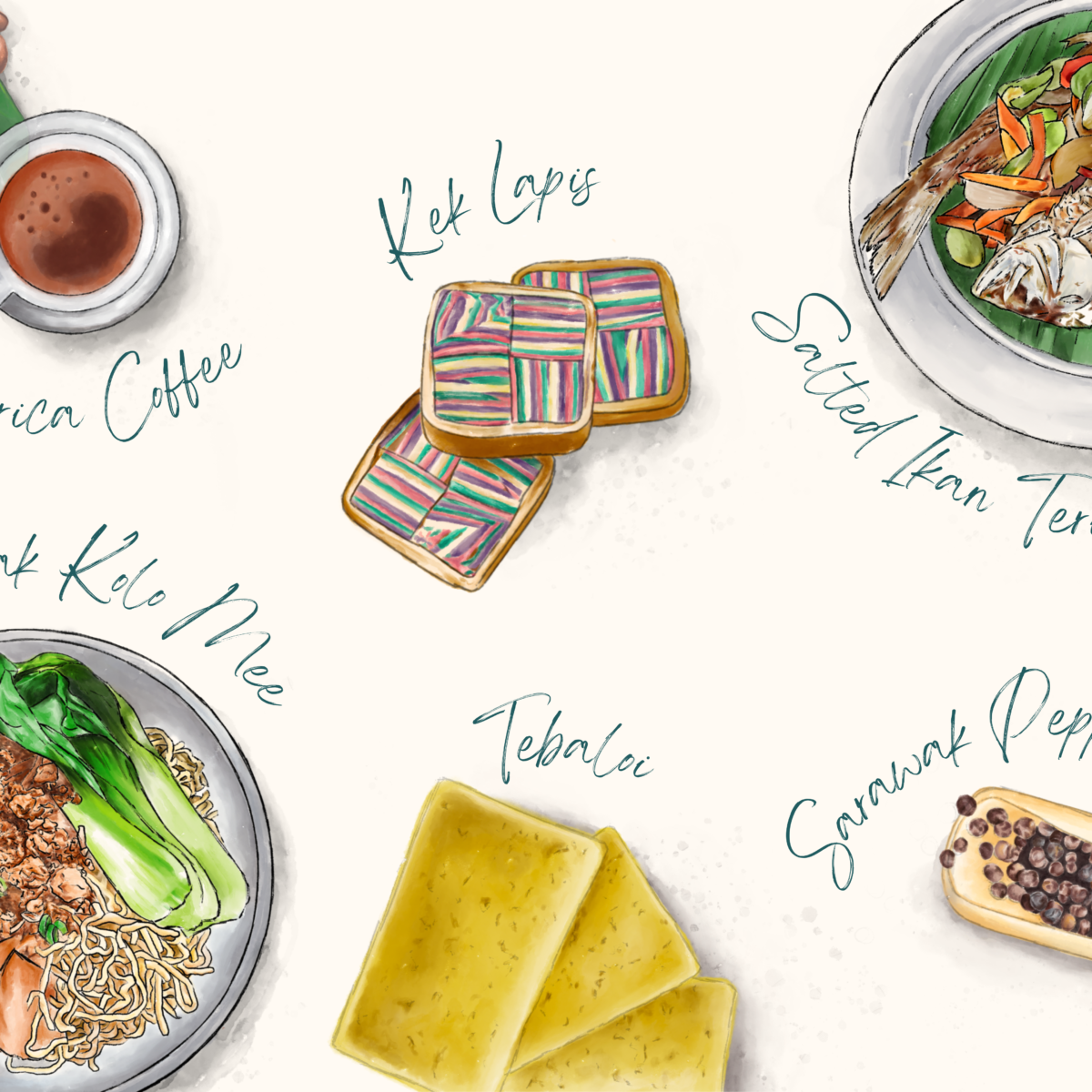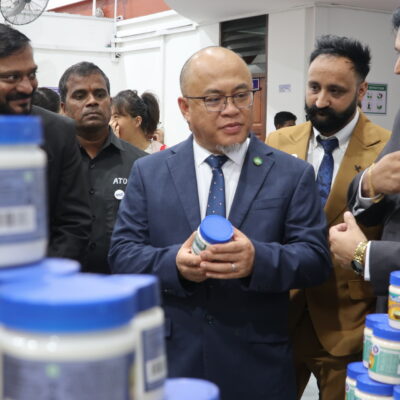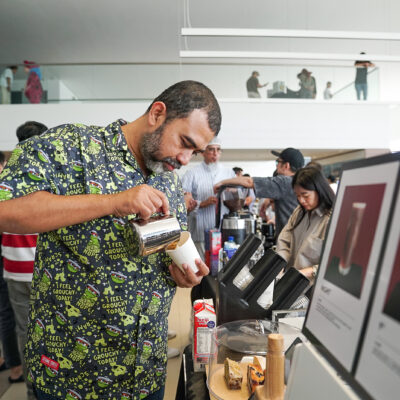Love Sarawakian food and what to relive the amazing tastes and flavours of the Land below the wind? We’ve rounded up the ultimate shopping list for the special ingredients and snacks that make up this truly unique cuisine of Borneo.
SALTED IKAN TERUBOK
Don’t turn your nose up at this dried fish! The salted and dried Ikan Terubok (Toli Shad) is a prized food in Sarawak and so delicious when it is deep fried that producers can sometimes hardly keep up with demand. The soft meaty flesh has lots of delicate bones that can easily be picked apart. Once it is fried however, the whole fish becomes an insanely crispy, salty. moreish item. It’s great chopped up and added to soups, stir fry’s, fried rice, whenever you want a pop of salty crunch!
LIBERICA COFFEE
Formerly dismissed in favour of the more known Robusta and Arabica beans, Liberica coffee was once relegated to the backyards of private growers and kopitiams in Sarawak. Its status as a speciality bean has grown in part thanks to the all-important kopitiam culture and the efforts of Dr. Kenny Lee, who runs the popular specialty café, Earthlings Coffee Workshop.
The more nuanced aspects of the robust bean can be explored at one of the many cupping sessions or coffee workshops that Earthlings holds to educate the public and coffee lovers. The Black Bean café on Carpenter Street is also a must visit for a true Sarawak kopitiam experience.
SARAWAK PEPPERCORNS
“The Malay and Indonesian terms of ‘Lada’ are derived from the Ancient Greek name λῆδον or lêdon, for the Gum Rockrose shrub,”
These fragrant berries (yes, they’re considered a berry!) are famous for their incredible scent and flavour profiles. Each of the four main varieties grown in Sarawak boasts a particular taste, heat level and aroma, and are especially delicious when toasted and cracked into dishes. We love using these special peppers to elevate dishes like a lemon pepper seasoning or Cacio e pepe pasta. If you want to add these to your shopping list, look for Lada Kuching, Lada India, Semongok Emas and Semongok Aman.
NOODLES AND LAKSA
Falling in love with the famous Sarawak Kolo Mee or Sarawak Laksa is easy, but replicating the experience at home? Not so. You can however get one step closing to the delicious bowl of heaven by bringing home the authentic ingredients. Pop into a supermarket or kedai runcit to get the ‘instant’ versions from local producers The Kitchen Food (Non-Halal), and Lee Fah who are popular choices for their tasty goods. Laksa paste on its own is also available in some souvenir shops like the Kuching Waterfront Souvenir Shop, but do check with the retailers on the Halal status of their products prior.
KEK LAPIS
“Similar to Parmigiano-Reggiano cheese, a Kek Lapis can only be sold as ‘Kek Lapis Sarawak’ is it is produced in the state of Sarawak according to the specifications of the Sarawak Layer Cake Manufacturers Association.“
You may be familiar with this multi layered, multi coloured sweet that is most referenced to Malaysian culinary culture, With a buttery base, the Lapis can come in basically any sweet flavour combination that you might think of and modern ones have even stepped up with more intricate designs and patterns on the inner face. Some of the most incredible varieties come from the state of Sarawak, and many shops offer packages that can keep your cake fresh and safe on its travels home with you.
You’ll be able to find a Kek Lapis anywhere in Sarawak. We love the versions at Di Wannie Cake and Maria Cake House, which are Halal-certified. Mira Cake House and Kek Lapis Mama Su come highly recommended for their varieties and incredible texture!
TEBALOI
This traditional snack is closely linked to the indigenous Melanau people of Sarawak and makes use of sago, an important food staple to the tribe. Rectangular and slightly yellowish in their original form, the Tebaloi are made with sago flour, desiccated coconut, eggs and sugar to form the dough which is then flattened on a large banana leaf and fire-cooked. The result is a wafer thin crisp with a sweet, toasty flavour that’s addictive with tea or coffee. The production of Tebaloi is concentrated in Mukat and Dalat.






